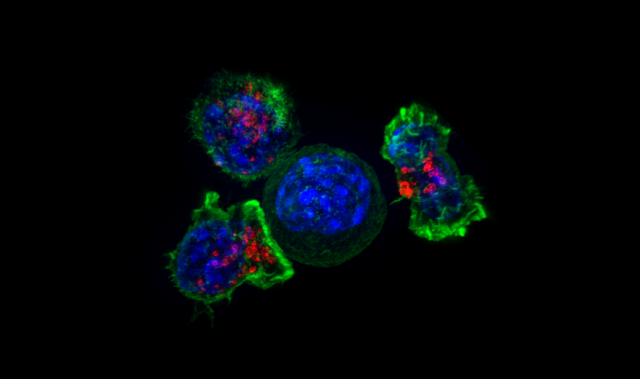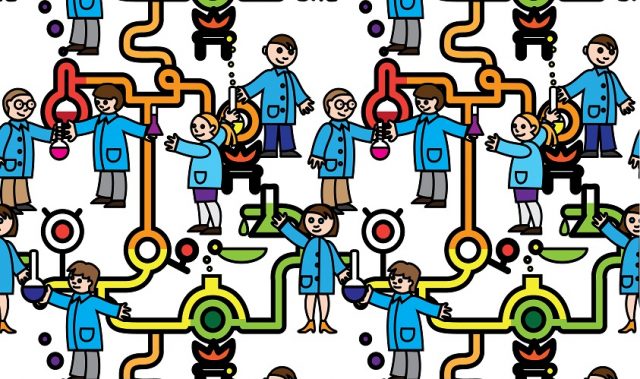
AsianScientist (Nov. 10, 2014) – Right in the middle of my PhD studies, I came across an article on The Economist that painted a rather bleak picture of life after graduation. In fact, similar articles seem to appear every year or so, simultaneously bemoaning the shrinking pool of academic jobs for an ever growing army of hungry PhD holders and yet how woefully unprepared they are for jobs outside the ivory tower.
That there aren’t enough tenured positions to go around hardly needs to be argued. But what interested me was the claim that skills obtained during your PhD are only very weakly transferable to careers outside of academia. Really? I thought to myself, as I looked around me at my exceptionally bright, hardworking and highly motivated colleagues at the bench. Whatever gave them that impression?
Potential employers, let me take the opportunity of this column to speak up for my friends with PhDs. Here are six traits that I think make PhD-level staff an asset to any organization. Even so, I’ve also seen how good qualities taken to the extreme and left unchecked can often turn negative, so the first four traits also have a flipside to them. Being aware of both their strengths and weaknesses could go a long way to making sure that you get the most out of your PhD staff.
- Persistent. Flipside: Stubborn.
- Hardworking. Flipside: Too hardworking.
- Highly motivated. Flipside: Easily bored.
- Independent. Flipside: Rebellious.
- Resourceful
- Not afraid of failure
Do you have a really tough problem that requires the synthesis of many different sources of information, most of them contradictory? Then a PhD staff is probably your best bet. Not only do difficult problems not faze us, many of us actually relish them.
However, this also means it can be difficult to convince us to drop ideas and move on, even when a project is failing. Thankfully, most scientists are ultimately reasonable people and if your data is convincing, we will move on!
PhDs are not afraid of hard work. After going through endless late nights in the lab, most typical working hours seem very reasonable in comparison, even too easy. (Going home before it’s dark? Pfft!)
Remember though that some have left the bench precisely because they are burnt out from the long hours. Nevertheless, old habits die hard, and lab culture can spill over to the office. It is in your interest that your staff have a balanced life, so shoo them home once in a while and resist the urge the exploit their willingness to work weekends.
Once you can convince them that something is worth doing, PhDs will get the job done. People who chose to pursue a PhD tend to be those driven by passion rather than those just trying to get by; no one would have endured all those years of grad school unless they wanted to do something meaningful with their lives.
But this also means that your PhD staff need to be constantly engaged and challenged. Monotonous and repetitive tasks which don’t require thinking might not fare well in the hands of a PhD. (That said, I did enjoy filling pipette tip boxes during times of stress, so it doesn’t mean we’re above mundane tasks.)
Scientists value independent thought. This independent streak is probably what drove many of us to take up a PhD in the first place. A well-trained PhD should be able to work without supervision and hand holding once the basic parameters of a job are in place.
On the other hand, researchers don’t like being told what to do. You can’t just tell them to do things without explaining why they must do them in the ways proscribed. In order words, PhDs might not do so well in highly rigid and hierarchical organizations where they are not allowed to question the status quo.
The following two points don’t seem to have a drawback, at least to my mind. Firstly, PhDs are resourceful, largely because we are used to constraints. Very few of us have had the luxury of working in labs with unlimited funding; much of our training is about finding ways to get things done with what we do have.
I’ve saved the strongest point for last. Unlike straight A students fresh out of university, a PhD is well-acquainted with failure. But having demonstrated the ability to push through the endless failed experiments, we know that failure is just a starting point and it can be overcome. This is an invaluable skill that PhDs possess in spades.
This list is of course just a generalization, and as any good biologist knows, there are exceptions to the rule. My own experience, more or less fresh out of graduate school, naturally lacks the depth of those who have been working and hiring for decades. PhDs who have left academia, what were the skills that you found most useful? Employers, would you say PhD staff are valuable to organization? Leave your comments below!
This article is from a monthly column called From The Editor’s Desk(top). Click here to see the other articles in this series.
—-
Copyright: Asian Scientist Magazine; Photo: Kai Schreiber/Flickr/CC.
Disclaimer: This article does not necessarily reflect the views of AsianScientist or its staff.













